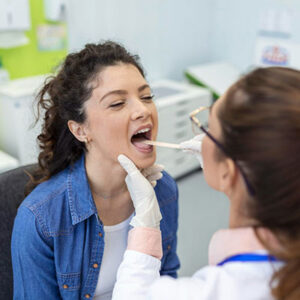What is Hyperpigmentation?
Hyperpigmentation is referred to as a condition that causes skin discoloration. It can happen to any person irrespective of the type of skin, ethnicity and gender. People who suffer from hyperpigmentation are seen to have dark patches on the skin. There are various reasons that causes hyperpigmentation. It can be due to increased secretion of pigment producing substance called “melanin” in the body, Melasma, excessive exposure to sun, and skin inflammation, etc.
Is Hyperpigmentation a life-threatening skin disorder?
No. Hyperpigmentation causes no physical damage, however, a person who suffers from it can feel self-conscious in front of public. If you are suffering from hyperpigmentation, then you need not feel anxious. The pigmented areas on the skin tends to fade away with passing time.
If you want quick relief from pigmentation, then topical creams and cosmetic treatment options will give you immediate relief from this skin condition. Learning about its causes, will help you prevent yourself from its recurrence.
Different forms of Hyperpigmentation
Before you start with any treatment for hyperpigmentation, you need to first identify the type of skin disorder. Hyperpigmentation occurs in basic two forms.
- In the first type, hyperpigmentation is caused in the form of sun spots and melasma. It happens due to excessive exposure to harmful UV rays of the sun. You can notice the skin of your legs, arms and face to get sun tanned.
- The second type of hyperpigmentation is caused due to skin inflammation. It is seen in the form of burns, cuts, lupus and acne. It can happen anywhere on your body.
Whatever be the form of hyperpigmentation, it needs to be dealt quickly. This is because excess of pigmentation in a specific region can be an indication of other medical conditions.
What are the causes for Hyperpigmentation?
Hyperpigmentation can affect you due to following reasons :
1. Excessive Exposure To Sun
Spending few minutes under the sun is beneficial for your skin. Only when you are exposed to the sun “bare skin” for a long time, then it becomes a problem. Excessive contact to harmful sun rays leads to increased production of melanin in the skin. This causes appearance of dark patches and spots that are referred to as sun spots or age spots.
2. Skin Inflammation
Now the next reason for hyperpigmentation is skin inflammation. This includes acne, lupus, eczema, or a skin injury. Consuming certain types of foods cause inflammation in the body. In addition to it, actual skin color of a person also plays a significant role in causing post-inflammatory hyperpigmentation. People who are dusky in complexion are more susceptible to causing skin inflammation.
3. Melasma
Hormones can be another factor responsible for hyperpigmentation. Dark patches can occur on the skin due to changes in hormones. So, if you experience fluctuations in hormone levels in your body, then you are at a higher risk of getting hyperpigmentation.
4. Reactions to medicine use
Specific types of medications, like tricyclic antidepressants, and antimalarial drugs lead to hyperpigmentation. If you consume these medicines, you can notice grey patches on skin. Sometimes topical treatments can contain chemicals in it that can lead to hyperpigmentation.
5. Medical conditions
Sometimes the existing medical conditions of a person can cause development of hyperpigmentation. These medical conditions include hemochromatosis and Addison disease. Addison is a disease that is caused due to malfunctioning of the adrenal glands. On the other hand, hemochromatosis is a kind of inherited condition where the body contains excessive amounts of iron. This can lead to hyperpigmentation that makes the skin appear tanned or darker.
What areas on the body are prone to Hyperpigmentation?
Hyperpigmentation can occur in different certain areas of the body. Some of the commonly affected regions include lips, elbows, knees, knuckles, toes, and inner side of the cheek.
Ways to Diagnose Skin Pigmentation
People who have hyperpigmentation should check with a doctor. He will examine the skin, and symptoms and ask you to perform skin biopsy. Some doctors also use Wood’s light to evaluate the condition. Based on the diagnosis, the exact cause and nature of hyperpigmentation will be identified and a treatment plan will be created.
Medical Treatments Available to Treat Hyperpigmentation?
Hyperpigmentation may occur in different intensities and forms in people. So, the treatment that suit one person may not suit another person. Treatment for hyperpigmentation differs on the basis of specific forms, type and color of skin, and ethnicity. Adequate skincare schedule and professional level skincare products are very much helpful in addressing hyperpigmentation and assist in its long-term deterrence.
Products that contain specific ingredients work at the cause of hyperpigmentation. It is impactful at lessening and/or completely eliminating spots and patches of discolored skin. Melasma is tough to treat. It is a hormonal issue. Treatments are devised to treat the condition on internal (using medicines) as well as external levels (using topical creams).
Some of the effective methods to prevent hyperpigmentation are as follows:
1. Avoid sun’s exposure
Avoid coming in direct contact with the sun for more than 15 minutes a day. If possible, try to avoid going outside in noon when the sun is at its peak. Since the UV rays are very harmful and can cause long lasting damage to your skin, it is better to take precaution at the first place.
2. Use a good quality sunscreen lotion
You can use a sunscreen lotion with SPF of 30 or more to safeguard the color of skin and prevent it from getting darker. Only use good quality sunscreen from reputed brands as they offer effective protection against further UV damage.
3. Topical creams
Professional level skin care creams are made with special ingredients that are helpful in treating different forms of hyperpigmentation condition. The only thing required is patience. It will require time to treat the condition and lighten the region of discoloration.
Check the quality of the ingredients, and method of using the topical treatment before you include them in your skin care routine. Ensure you use topical treatments under supervision of an experienced medical supervisor.
Doctors generally advise topical creams and lotions to lighten the skin. These topical creams contain below ingredients to treat hyperpigmentation.
- corticosteroids
- azelaic acid
- kojic acid
- hydroquinone
- retinoids like tretinoin
- vitamin C
Note : Before you apply any topical treatment, it is advised to always perform a patch test first. Apply the product on a small section and see how it feels on your skin. If you notice any irritation, then you should discontinue it.
4. Cosmetic procedures
If topical creams fail to cure your hyperpigmentation, then the last resort is to perform a cosmetic treatment. Some of the treatments that your dermatologist or plastic surgeons recommends are invasive treatments. They vary in concentration and intensity depending on the severity of the case. These cosmetic procedures are proven to lighten discoloration and the occurrence of hyperpigmentation.
A few prominent cosmetic hyperpigmentation procedures include:
- Laser therapy
- Chemical peels
- Intense pulsed light
- Microdermabrasion
Note : People who are planning to perform these procedures, must discuss about them and likely side effects with their dermatologist.
Important Precaution : Don’t scratch or remove the skin
For preventing hyperpigmentation, you need to avoid removing the skin at scabs, acne and spots.
Home Remedies to treat Hyperpigmentation
There is always some amount of risk involved with the use of chemical enriched and cosmetic procedures. So, it is better to try natural remedies and treatments to get rid of hyper-pigmentation. Below mentioned three home remedies are proven to lessen the intensity of skin discoloration due to hyperpigmentation.
1. Aloe Vera
Aloe Vera is one of the best natural remedies for the skin. It is touted for its remarkable skin boosting action. It contains a powerful skin lightening compound as “Aloesin” that is helpful in curing hyperpigmentation. This compound works by limiting the secretion of color producing substance “melanin” in the skin. To get the benefits of Aloe Vera for the treatment of hyperpigmentation, apply its gel on the impacted area every day or consume Aloe Vera capsule.
2. Licorice
Another important home remedy to treat skin discoloration is Licorice, or “Mulethi”. The extract of licorice called “Glabridin” that possess antioxidant, skin-whitening and anti-inflammatory action. You can find topical creams that are made with this extract. Regular application of these creams will help you reduce hyperpigmentation safely, gradually and naturally.
3. Green tea
Green tea extract is proven and time-tested for its skin benefits. Green tea is rich in anti-oxidants. It exhibits potent anti-inflammatory and skin lightening properties that help in treating hyperpigmentation. This extract is also found useful in the efficient cure of melasma and sunburn.
All you need is to boil green tea leaves in water for some time. Drain the mixture and cool it. Apply it on the pigmented skin with the help of cotton. Do this regularly for a few days to see results.
Frequently Asked Questions About Hyperpigmentation
Here we have listed a few FAQs related to Hyperpigmentation to give you more clarity on this subject.
1. Are pregnant women more prone to hyperpigmentation?
Constant reduction or increase in the levels of hormone is one of the major reasons for hyperpigmentation. Pregnancy involves fluctuations in hormone levels. This makes pregnant women prone to hyperpigmentation.
2. Is vitamin C effective to treat hyperpigmentation?
Vitamin C is one of the most vital skin nourishing and boosting vitamins. This vitamin possesses exceptional anti-aging and anti-inflammatory properties. It helps in preventing the over production of melanin in the body. Oral consumption (in the form of citrus fruits) or topical application of Vitamin C in cream-based form lightens pigmented skin.
3. What are the after-effects of laser pigmentation removal process?
Just after when you perform laser pigmentation removal process, you can find different types of changes in the skin. It can either become dark, light, or do not show any change at all. After two to three days, you will see the actual results from the treatment. The method eliminates discoloration on the skin’s surface through the lymphatic system of the body.
4. What is the possibility of recurrence of pigmentation after performing laser treatment?
Common types of discolored patches don’t come back. Some lesions may reappear after a year. In latter cases, you can perform laser process again to obtain similar outcome.
5. What is the ideal treatment recommended for hyperpigmentation?
A wide range of topical treatments are recommended by dermatologists for post-inflammatory, and epidermal hyperpigmentation. The below mentioned topical creams have different ingredients in it that shows varying level of results to a person. Ingredients that are common include in these ingredients are tretinoin cream, hydroquinone, glycolic acid, azelaic acid and corticosteroids. Some of the best skin lightening creams advised for hyperpigmentation are:
- RESIST Triple-Action Dark Spot Eraser 7% AHA Lotion by Paula’s Choice
- Pure Powerbright TRX C-12 Serum by Dermalogica.
- Powerbright TRX Treatment Kit by Dermalogica
- EVEN BRIGHTER Pigment Reducing Day Cream SPF30 by Eucerin
- EVE LOM’s White Brightening Cream.
6. What products are effective in getting rid of hyperpigmentation?
In the market, you can find several OTC products, and prescription-based creams that gradually reduces dark spots on the skin. The below ingredients possess skin lightening and bleaching qualities that lightens skin complexion and fades dark patches effectively.
- Vitamin C enriched lotions
- Mandelic acid
- Azelaic acid
- Niacinamide
- Kojic acid
- Retinoids
- Hydroquinone
- Chemical peel, and
- Turmeric
7. Can I apply essential oils to get relief from hyperpigmentation?
Yes. Essential oils are also impactful to lighten the dark spots on the skin. A few of these beneficial oils are listed below:
- Lemon Essential Oil
- Lavender Essential Oil
- Carrot Seed Essential Oil
- Frankincense Essential Oil
- Sandalwood Essential Oil
- Geranium Essential Oil
- Rose Essential Oil
- Chamomile Essential Oil
Before you try these oils, talk to your doctor about the right quantity and method of application.
8. What is the normal time taken to fade hyperpigmentation naturally?
It takes anywhere between 3 months to 24 months to naturally cure hyperpigmentation. The actual duration needed to lessen dark color depends on the severity of the condition. If the spot is very dark, then it can take more than 24 months to disappear.
9. Does Laser treatment permanently remove the pigmentation?
Laser treatment is considered to be one of the highly advanced treatments available for removal of undesired coloration on the skin. Type of skin conditions that can be effectively, and permanently treated by Laser includes age spots, freckles and sun spots. ActiveFX Laser Resurfacing can even cure 80% of deep pigmentation condition called “Melasma” in just one sitting. It may need a couple of more sittings to completely cure this severe condition.
10. What needs to be consumed to lessen skin hyperpigmentation?
Following foods contains phytochemical and anti-inflammatory agents that helps in effective treatment of hyperpigmentation from the root level.
- Tomatoes
- Mangoes, apricots and papaya
- Flaxseeds
- Cocoa powder
- Mussels
- Sweet potatoes
- Spinach
- Canned tuna
Conclusion
Hyperpigmentation is one of the common types of skin conditions that has been seen to affects several people for numerous reasons. It is an inoffensive skin condition that can easily be cured using removal methods such as creams, home remedies and cosmetic treatments.
On noticing any signs related to hyperpigmentation, you should seek assistance of an experienced dermatologist. Home remedies, topical treatments, and cosmetic treatments are the most recommended and safe treatment methods to get quick and effective relief from hyperpigmentation.
Hope you find this post useful. Share it with others on social media platform to let others also benefit from it. If you have any comments, queries or suggestions, then please write to us.

















